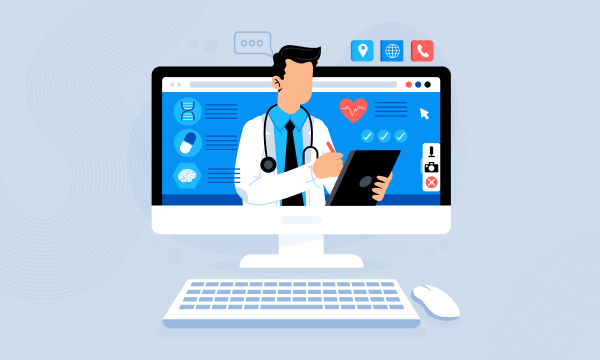Introduction
Advancements in medical technology have revolutionized the healthcare industry, enhancing diagnostic accuracy, treatment efficacy, and patient outcomes. One of the most significant drivers of these advancements is the field of genetics. Over the past few decades, our understanding of genetics has grown exponentially, leading to breakthroughs that have transformed the way we approach disease prevention, diagnosis, and personalized treatment. In this article, we will explore the pivotal role genetics plays in advancing medical technology and the potential it holds for the future of healthcare.
Genomics and Precision Medicine
Genomics, the study of an individual’s complete set of genes (genome), has been a game-changer in medicine. With the advent of next-generation sequencing technologies, it has become feasible and affordable to sequence an individual’s entire genome, unlocking an unprecedented level of genetic information. This wealth of data allows for personalized medicine, tailoring treatment plans based on an individual’s genetic makeup and specific disease risks. Precision medicine aims to optimize therapies and improve patient outcomes by matching the right treatment to the right patient at the right time.
Genetic Testing and Early Disease Detection
Genetic testing has transformed the landscape of early disease detection. Genetic tests can identify specific gene mutations associated with various diseases, allowing for early diagnosis and intervention. For example, genetic testing can identify individuals with a high risk of hereditary cancers, such as BRCA mutations linked to breast and ovarian cancers. Early detection enables proactive medical management and preventative measures, potentially saving lives and reducing the burden on healthcare systems.
Pharmacogenomics and Personalized Drug Therapies
Pharmacogenomics is the study of how an individual’s genetic makeup influences their response to drugs. This field has led to the development of personalized drug therapies, tailoring medications to suit a patient’s genetic profile. By understanding how a person’s genes impact drug metabolism and efficacy, healthcare professionals can optimize drug selection and dosage, minimizing adverse reactions and increasing treatment success rates.
Gene Editing and Gene Therapy
One of the most groundbreaking advancements in medical technology is the emergence of gene editing techniques such as CRISPR-Cas9. Gene editing allows scientists to modify an individual’s DNA, offering promising prospects for curing genetic disorders. In gene therapy, faulty genes can be replaced or repaired, offering hope for conditions that were previously deemed incurable. Although still in its early stages, gene therapy holds immense potential for the treatment of genetic diseases, and ongoing research is continuously expanding its applications.
Genetic Biomarkers and Disease Prognosis
Genetic biomarkers are genetic variations associated with certain diseases or responses to treatment. These biomarkers play a critical role in disease prognosis and treatment planning. By identifying specific genetic markers, clinicians can predict disease outcomes, customize treatment approaches, and monitor a patient’s response to therapy. This precision approach to medicine ensures that patients receive the most effective and personalized care available.
Predictive and Preventive Medicine
Genetics has empowered the field of predictive and preventive medicine by identifying individuals at high risk of developing certain diseases. Armed with this knowledge, healthcare providers can implement proactive measures to prevent disease onset or mitigate its effects. Lifestyle modifications, regular screenings, and targeted interventions based on genetic risk can significantly reduce the incidence and impact of diseases like cardiovascular disorders, diabetes, and some forms of cancer.
Big Data and Artificial Intelligence (AI) in Genetics
The wealth of genetic data generated through various sequencing technologies presents a unique challenge in terms of data analysis and interpretation. This is where artificial intelligence and machine learning step in. AI algorithms can process vast amounts of genomic data, identify patterns, and predict disease risks or treatment responses with remarkable accuracy. Integrating AI with genetics has the potential to revolutionize medical research and patient care, accelerating the development of innovative therapies and improving medical decision-making.
Ethical Considerations
With the rapid progress in genetic technologies, it is essential to address ethical concerns associated with genetics in medical technology. Issues such as data privacy, consent, genetic discrimination, and access to genetic testing and therapies must be carefully navigated to ensure equitable and responsible use of genetic information.
Conclusion
Genetics plays a pivotal role in advancing medical technology, transforming healthcare from a reactive approach to a proactive and personalized one. From genomics and precision medicine to gene editing and AI-driven data analysis, genetics has opened up exciting possibilities for disease prevention, early detection, and personalized treatment strategies. As our understanding of genetics deepens and technology continues to evolve, the potential for improving patient outcomes and enhancing the overall quality of healthcare is boundless. However, it is essential to tread carefully and responsibly, addressing ethical considerations to harness the full potential of genetics in advancing medical technology for the betterment of human health.
Source : https://sites.google.com/site/bestessaywritingservicereview/

